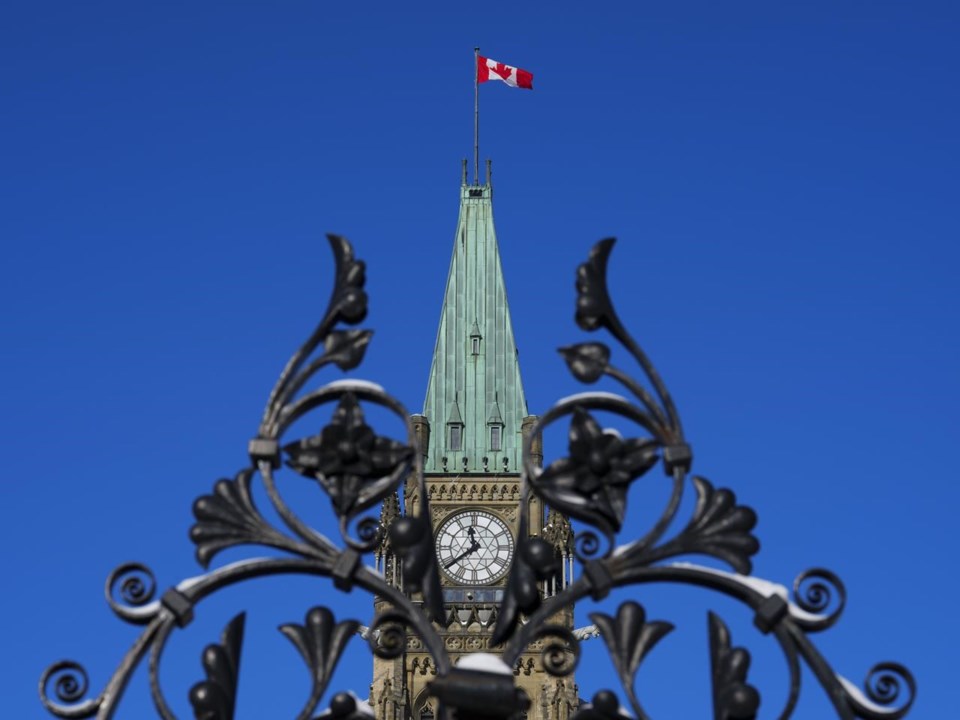OTTAWA — As the Liberal government drafts its spring budget, fiscal experts say it should consider stricter spending rules and higher taxes to improve federal finances.
The budget comes at a time when the government is facing pressure to rein in spending so as to not work against the Bank of Canada's inflation-fighting efforts.
The central bank has aggressively raised interest rates over the last year to dampen spending by consumers and businesses. Excessive fiscal stimulus could reverse some of that work.
Canada could also experience a recession this year that would affect government revenues. Faced with these challenges, Finance Minister Chrystia Freeland has stressed that her government is committed to fiscal responsibility.
"Fiscal responsibility is really important and I'm very conscious we're putting this budget together at a time of meaningful fiscal constraint," Freeland said last week, days before announcing the budget will be tabled on March 28.
But to actually be fiscally responsible, some budget experts say the Liberals will need to make tough choices that may not be politically expedient or advantageous in the short-run.
Former parliamentary budget officer Kevin Page says there's a political bias tilting governments in favour of running deficits.
"It's harder for governments to raise taxes," he said.
Page said the current government has been "rightly criticized for running relatively loose fiscal policy," while resisting calls to implement stricter fiscal anchors.
Fiscal anchors are spending rules that guide government decisions.
Page, who currently heads the Institute of Fiscal Studies and Democracy, said fiscal anchors help constrain governments against the temptation to always borrow more.
The current government's fiscal anchor over the medium term is reducing the amount of debt compared to the size of the economy, what is referred to as the debt-to-GDP ratio. It also has committed to winding down its pandemic-related spending.
Robert Asselin, Business Council of Canada's senior vice-president of policy, said the federal government's fiscal anchor isn't adequate. He's advocated for capping spending on financing government debt as a percentage ofrevenues.
Conservative Leader Pierre Poilievre has railed against government spending that he blames for inflation. Ahead of the budget, he's calling on the Liberals to cap spending by committing to match every new dollar of spending with cuts elsewhere.
The leader of the Opposition also wants tax cuts, which would drive up the deficit without spending cuts.
Asked what should be cut, Poilievre pointed to federal funding for the CBC, private consultants and the promised federal buyback of what the government considers assault-style firearms.
However, some policy experts are recommending tax hikes to improve federal finances, noting government revenues are part of the equation when it comes to fiscal responsibility.
A shadow budget recently published by the C.D. Howe Institute makes that very recommendation, suggesting an increase to the GST.
"A key motive underlying this shadow budget is ensuring that Canadians who benefited from the massive pandemic-related federal spending should help pay for it," the report by the economic think tank reads.
Asselin, who was former Liberal finance minister Bill Morneau's budget director, said governments over the last two decades have shied away from raising taxes.
But the federal government can't keep financing its expenditures through deficits, he said. "At (some) point, either they reduce spending or they hike revenues."
Given the long-term challenges related to the green transition and other priorities this government has, Page also said it might be time to start talking about raising taxes.
The federal government is expected to announce major investments in the green transition in this budget. These measures aim to keep Canada competitive globally in light of significant investments made by the U.S. last summer in the Inflation Reduction Act.
"We really believe as a government that there is a historic window right now that is open for Canada to building the industrial Canadian economy of the 21st century," Freeland said last week.
Though these measures may involve significant spending commitments, economists generally note that investments like this can reap dividends for the economy.
Page said these investments need to be separated from other spending decisions, given they have different effects on the economy and inflation.
"When you're dealing with these next-generation issues … you want to make sure that we're making these investments," he said.
This report by The Canadian Press was first published March 14, 2023.
Nojoud Al Mallees, The Canadian Press
Note to readers: This is a corrected story. A previous version said Robert Asselin has advocated for capping spending on financing government debt as a percentage of GDP.



